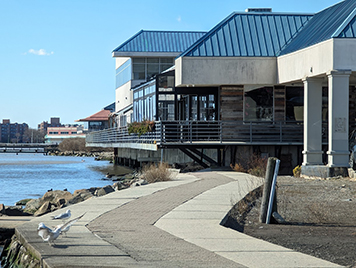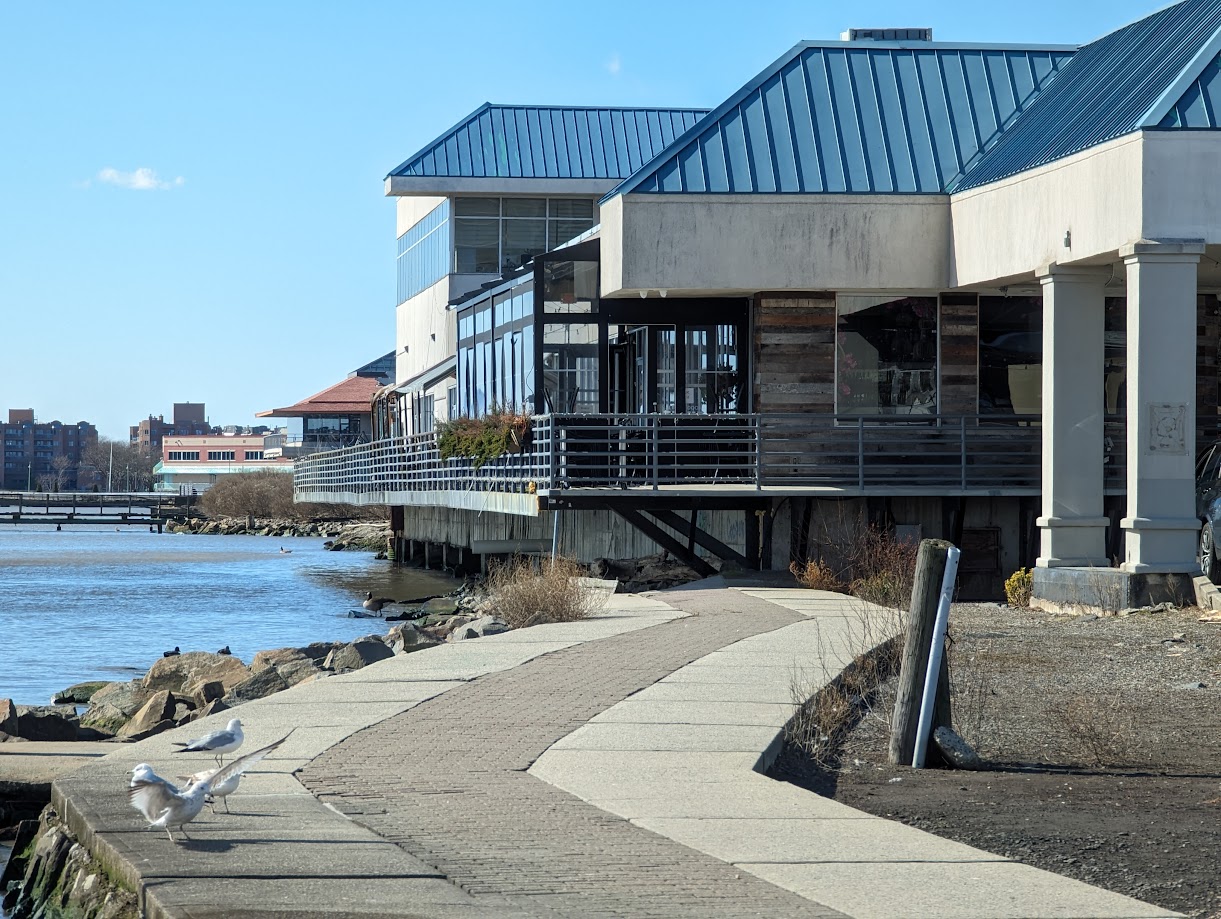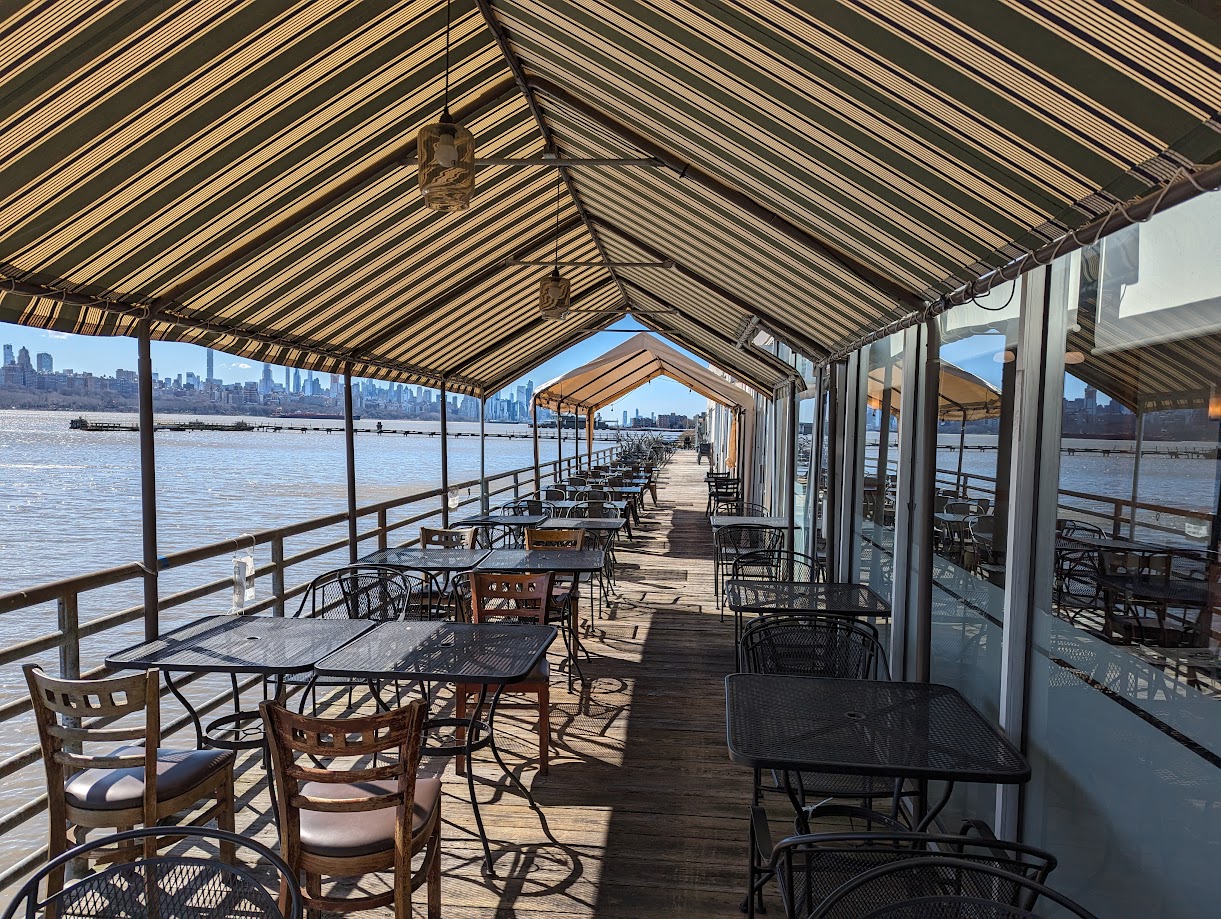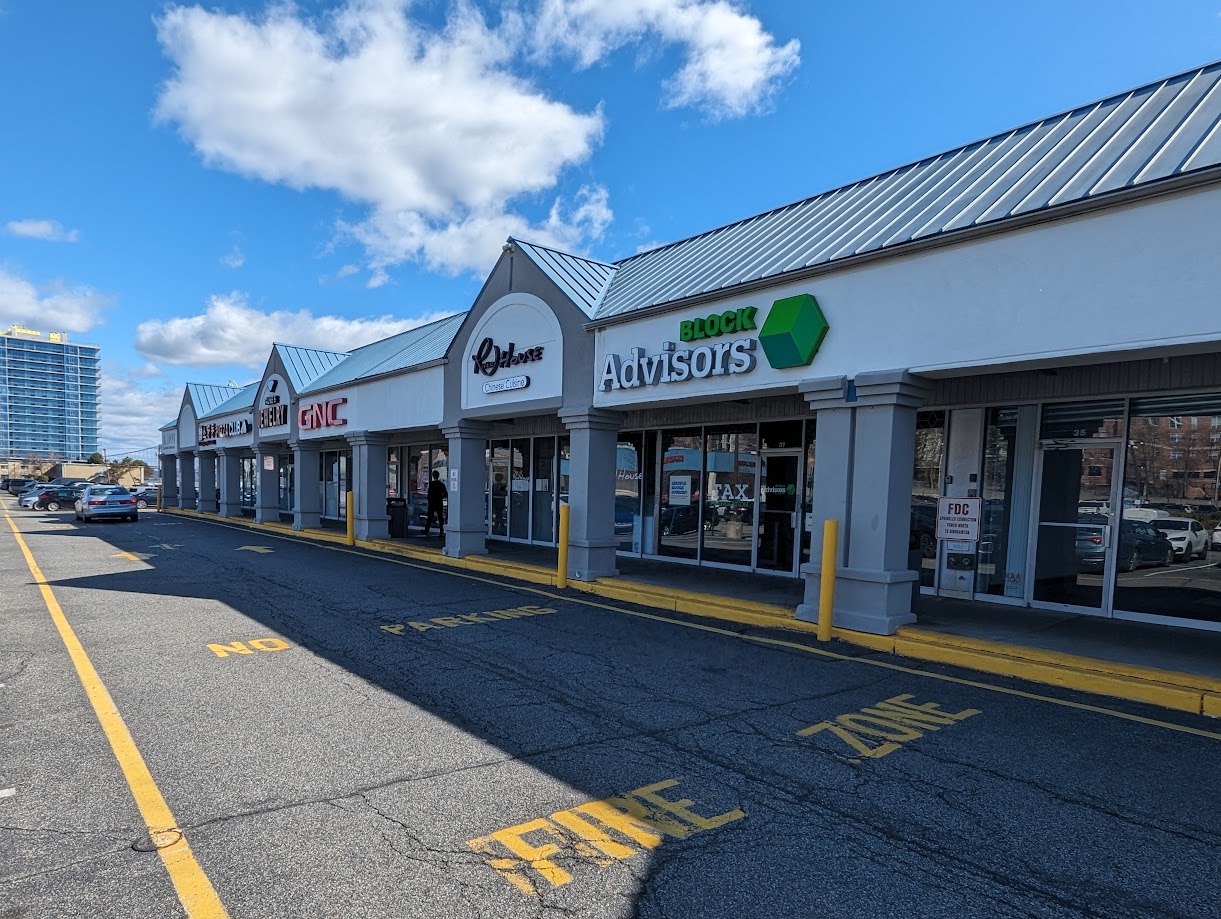Conservancy pushes to complete the final gaps in the mostly built Hudson River Waterfront Walkway
The retail stores and restaurants at the Edgewater Marketplace block access to the water’s edge, preventing the continuation of the Hudson River Waterfront Walkway on this land owned by the NJDEP.
FBW | March 13, 2024
For a nine-mile stretch from Port Liberte in Jersey City to the George Washington Bridge, you can now walk the length of the Hudson River shoreline, except for a few gap sites that are inaccessible to the public. Since 1984, the New Jersey Department of Environmental Protection (NJDEP) has provided for this public walkway in its Coastal Zone Management Regulations. In close cooperation with the NJDEP, the nonprofit Hudson River Waterfront Conservancy oversees the implementation of this 30-foot-wide pedestrian pathway called the Hudson River Waterfront Walkway.
Remarkably, the NJDEP itself owns one of the gap sites in the waterfront walkway at 725 River Road in Edgewater. The NJDEP leases this property to several companies that operate a strip mall called the Marketplace. A row of shops and restaurants abuts the water’s edge at the Marketplace, with a raised deck allowing diners to enjoy riverfront vistas but making it inaccessible to the public.
In recent years, the Conservancy has been laser-focused on completing the missing sections of the Hudson River Waterfront Walkway. Frustrated by the lack of progress at the Marketplace, the Conservancy took the extraordinary step of suing the NJDEP for its failure to complete the public walkway there.
On February 5th, represented by legal counsel Scott Piekarsky, Esq. of Offit/Kurman, the group filed suit in the United States District Court in Newark naming the NJDEP and three LLCs as defendants. The action seeks to enforce New Jersey’s Public Trust Doctrine and the Americans with Disabilities Act.
“Despite our continuing requests to the Department for over a year to address the violations and enforce the lease provisions which require their tenants to comply with the Public Trust Doctrine,” stated Donald Stitzenberg, the President of the Conservancy, “[the] DEP has failed to take any corrective action.”
Owners of property along the Hudson River must obtain a waterfront permit from the NJDEP to develop their sites. As a condition of the permit, the owner is required to construct its portion of the waterfront walkway and grant a conservation easement to the NJDEP.
Today, in the United States, the Public Trust Doctrine is part of our common law. This doctrine applies to lands that were once flowed by the tides. Thus, the Hudson River shoreline, identified by New Jersey’s Coastal Zone Management Regulations as the “filled water’s edge,” is governed by the Public Trust Doctrine. The State of New Jersey used this doctrine as the basis for the establishment of the Hudson River Waterfront Walkway regulations.
In 2019, the Conservancy also filed suit against a condo association at Admirals Walk, another Edgewater gap site that failed to comply with the state walkway requirements. Judge Lisa Perez Friscia of New Jersey State Superior Court in Bergen County ordered Admiral’s Walk to open its riverfront to the public. Admiral’s Walk is a 297-unit gated community whose website describes a “private park-like walkway along the river” as one of its amenities. Since it was built in the 1980s, this 8.8-acre site, including the water’s edge, has been off limits to the public. When built, this will complete a critical 900-foot missing piece of the Hudson River Waterfront Walkway.
In Hoboken, the Hudson River Waterfront Walkway is fully built except for the Union Dry Dock site. At Union Dry Dock, the walkway will not be completed until Hoboken’s lease with NY Waterway comes to an end. This 3-year lease began in December 2023 but can be renewed for an additional two years.
The Conservancy has also petitioned the NJDEP for a rule change in the Coastal Zone Management Regulations to allow construction of a temporary path on gap sites where private development is likely to be delayed for a number of years. The Fund for a Better Waterfront has communicated with its local legislators in support of this rule change.
Related Video
Walking the Hudson River Waterfront Walkway
Related Links
Court rules that Edgewater condo association must open its 900-foot stretch of waterfront
FBW to honor Don Stitzenberg of the HRWC with the 2022 Riparian Award
Filling the final gaps in the Hudson River Waterfront Walkway
The privatization of part of Pier A Park’s Hudson River Waterfront Walkway
The Public Trust Doctrine
Walking the public walk along the dramatically transformed Bayonne waterfront
A Plan for the Hoboken Waterfront




